Education Front and Center: How to Activate Learning Ecosystems
Key Points
-
We’ve always known that communities have the wisdom and skills to teach their children.
-
The question is, how do you activate this learning ecosystem?
-
Learn from what Remake Learning has been exploring and workshopping and developing.
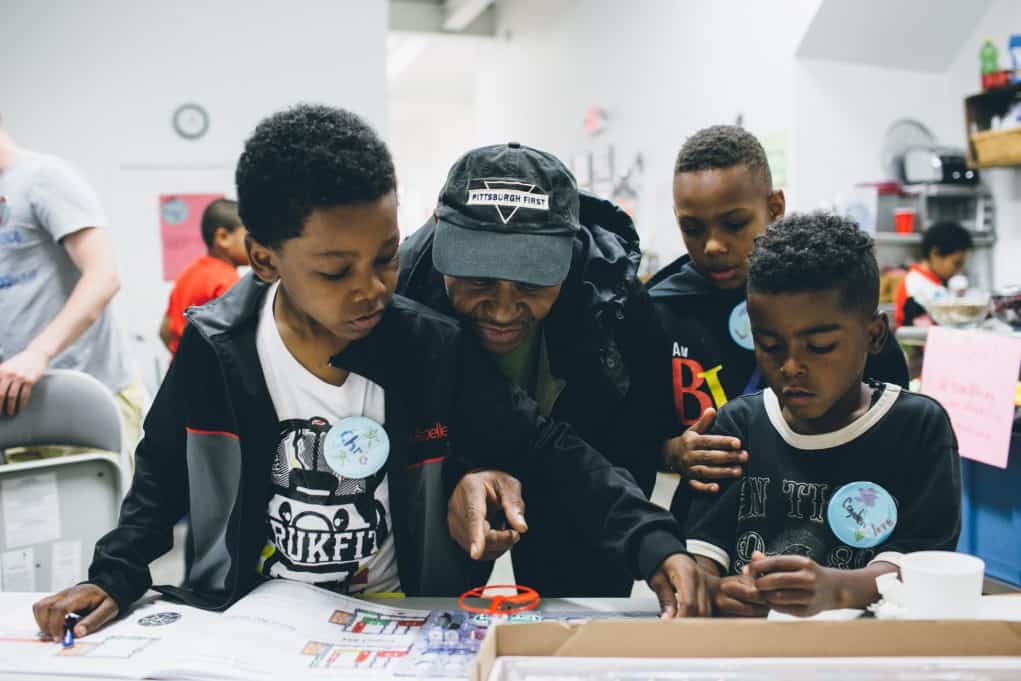
By: Gregg Behr
The discussion this past weekend fueled new ideas about how to reinvent education. World leaders gathered for the Transforming Education Summit at the United Nations with an urgent goal. Educators all over the world are grappling with “a global crisis in education — one of equity and inclusion, quality and relevance,” according to the U.N. “Often slow and unseen, this crisis is having a devastating impact on the futures of children and youth worldwide.”
Yes. This crisis must urgently be addressed, and it’s true that it remained unseen and unexplored in many communities before the pandemic made it dramatically visible. But the encouraging news is this: remarkable organizations around the world have been tackling this crisis for many years. And as our own organization, Remake Learning, works alongside organizations that include WISE, OECD, HundrED, Global Education Leaders Partnership (GELP), Big Change and many others, we see powerful solutions and ideas that can elevate learning for all children.
The timely solutions we have to offer don’t require massive funding. They don’t involve anyone parachuting in from outside to stamp cookie-cutter approaches on other communities.
In many cases, they involve looking directly to the wisdom that already exists within every community — something the Remake Learning network has been cultivating and elevating throughout the Pittsburgh region for 15 years.
Depending on what you know about Pittsburgh, you may be surprised to hear that our unassuming, mid-sized American city has become a forerunner and global player in the world of learning innovation. This week we were gratified to be named a recipient of the 2022 WISE Award for our innovative work in building a truly thriving learning ecosystem and sharing this knowledge with other communities through groundbreaking projects such as Remake Learning Days Across America.
This week, as we begin publicly sharing the Pittsburgh Principles — eight powerful ideas that form a roadmap to more equitable and impactful learning — you will note that one key idea among them is that learning already happens everywhere.
In many ways, learning ecosystems embody the proverb that “it takes a village to raise a child.” Learning is happening everywhere, all the time. The trouble is only a small fraction of that learning is recognized, validated and encouraged to grow. Communities can’t develop and expand their learning ecosystems without first recognizing their existence, and then consciously forging connections across sectors.
The question is, how do you activate this learning ecosystem?
Gregg Behr
At Remake Learning, that’s what we do. Our work is at the forefront of the global effort to transform education because we’ve respected and invested in truly local wisdom. Just one example is a project we are funding through a Moonshot grant that is designed to leverage local skills, knowledge and resources: at Butler Area School District, about an hour north of Pittsburgh, a program called Growing a Green Future.
In Butler, some students live in rural areas of the county and their families work in farming. Others live in the city of Butler — an urban area that is effectively a food desert. This program brings together the knowledge and the needs of the entire community by using acreage at one of Butler’s rural elementary schools to farm fresh produce. District students are directly involved in growing and selling the food — actively bringing fresh food to the entire community while learning environmental science, farming and business skills, and community cooperation.
Some students will find passions that lead them to careers. All of them will gain math and science skills in a real-world setting while connecting to the outdoors, and they will carry those skills with them into adulthood.
We’ve always known that communities have the wisdom and skills to teach their children. The question is, how do you activate this learning ecosystem? How do you accredit the teaching and learning that’s happening, and how do you effectively bring together K–12 schooling and out-of-school-time providers for the highest benefit of all kids, within the budget available?
We have answers to these questions — answers we’ve been developing since the Remake Learning network began 15 years ago. You can learn from what Remake Learning has been exploring and workshopping and developing. And, because our work has always been built to be shared and adapted for local needs and used to elevate local wisdom, local resources and local brilliance, communities can use these ideas to create innovation that is truly their own.
Just ask the cities and regions throughout the U.S. that have created their own Remake Learning Days festivals held in the spring. They grew from a celebration of Pittsburgh’s learning ecosystem but are truly unique in each location.
We’ve been thinking globally and acting locally since long before the pandemic put the world’s eyes on the desperate need for innovation in teaching and learning. We know the power of caring neighbors with knowledge to share, and we see their impact on kids who want and deserve an education that opens doors to a thriving future. And we know the power of strategic funding from community stakeholders. Just this week, our members committed nearly $100 million to make learning more engaging, more relevant and more equitable. These commitments, pledged by funders, industry partners, universities and others, represent a remarkable bet on Pittsburgh and its learners.
As the world gathers in New York this weekend to explore solutions to the global education crisis, proven ideas and solutions are close at hand. Pittsburgh and the Remake Learning network have ideas that communities throughout the world can use. And each of these communities already has a learning ecosystem just waiting to be activated.
Gregg Behr is executive director of The Grable Foundation and co-chair of Remake Learning. Behr co-authored the book, When You Wonder, You’re Learning: Mister Rogers’ Enduring Lessons for Raising Creative, Curious, Caring Kids.
This post is part of our New Pathways campaign sponsored by ASA, Stand Together and the Walton Family Foundation.



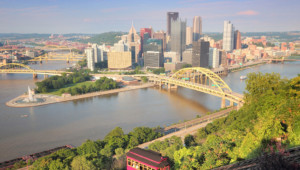
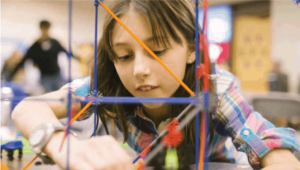
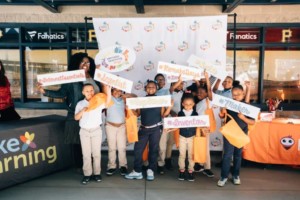
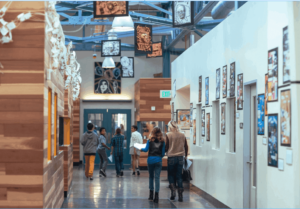
0 Comments
Leave a Comment
Your email address will not be published. All fields are required.